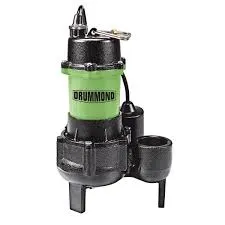Slovenian
- Afrikaans
- Albanian
- Amharic
- Arabic
- Armenian
- Azerbaijani
- Basque
- Belarusian
- Bengali
- Bosnian
- Bulgarian
- Catalan
- Cebuano
- Corsican
- Croatian
- Czech
- Danish
- Dutch
- English
- Esperanto
- Estonian
- Finnish
- French
- Frisian
- Galician
- Georgian
- German
- Greek
- Gujarati
- Haitian Creole
- hausa
- hawaiian
- Hebrew
- Hindi
- Miao
- Hungarian
- Icelandic
- igbo
- Indonesian
- irish
- Italian
- Japanese
- Javanese
- Kannada
- kazakh
- Khmer
- Rwandese
- Korean
- Kurdish
- Kyrgyz
- Lao
- Latin
- Latvian
- Lithuanian
- Luxembourgish
- Macedonian
- Malgashi
- Malay
- Malayalam
- Maltese
- Maori
- Marathi
- Mongolian
- Myanmar
- Nepali
- Norwegian
- Norwegian
- Occitan
- Pashto
- Persian
- Polish
- Portuguese
- Punjabi
- Romanian
- Russian
- Samoan
- Scottish Gaelic
- Serbian
- Sesotho
- Shona
- Sindhi
- Sinhala
- Slovak
- Slovenian
- Somali
- Spanish
- Sundanese
- Swahili
- Swedish
- Tagalog
- Tajik
- Tamil
- Tatar
- Telugu
- Thai
- Turkish
- Turkmen
- Ukrainian
- Urdu
- Uighur
- Uzbek
- Vietnamese
- Welsh
- Bantu
- Yiddish
- Yoruba
- Zulu
Telephone: +86 13120555503
Email: frank@cypump.com
Dec . 03, 2024 20:12 Back to list
Design and Performance Analysis of Mixed Flow Pump Impellers for Enhanced Efficiency
Understanding Mixed Flow Pump Impellers
In the world of fluid dynamics, the design and functionality of pump impellers play a crucial role in the efficient transfer of liquids. Among the various types of pump impellers, mixed flow pump impellers have gained prominence due to their unique design and operational advantages. This article delves into the characteristics, functioning, applications, and benefits of mixed flow pump impellers.
What are Mixed Flow Pumps?
Mixed flow pumps are a category of centrifugal pumps that combine elements of both axial and radial flow in their operation. Unlike radial flow pumps, which propel liquid perpendicularly to the pump shaft, mixed flow pumps generate a flow that is at an angle to the shaft, combining both upward and radial movement. This unique design allows for efficient handling of large volumes of fluid at moderate heads.
Design and Construction
The impeller of a mixed flow pump is crucial to its performance. Typically, these impellers have a series of curved blades that are designed to impart both velocity and pressure to the fluid. The blades are strategically positioned to create a flow path that maximizes efficiency while minimizing turbulence. The geometry of the blades, including their angle and curvature, is meticulously calculated to achieve optimal performance under varying conditions.
The mixed flow impeller operates by drawing fluid in through the eye of the impeller, with the fluid then being directed outward and upward as it moves through the impeller’s channels. This action creates a combination of flow types that is beneficial for various pumping applications, especially where consistent pressure and flow rates are essential.
Applications of Mixed Flow Pump Impellers
Mixed flow pump impellers are widely used across various industries due to their versatility. Some common applications include
1. Water Supply and Irrigation They are often employed in municipal water supply systems and agricultural irrigation, where a steady flow of water is needed at moderate pressures.
2. Chemical Processing In chemical plants, mixed flow pumps transport corrosive and viscous fluids effectively.
mixed flow pump impeller

4. Cooling Water Systems They are extensively used in power generation plants and industrial cooling processes to maintain the necessary temperature levels.
Benefits of Mixed Flow Pump Impellers
The design of mixed flow impellers offers several advantages that make them suitable for a wide range of applications
- Efficiency Mixed flow pumps are designed for high efficiency, often exceeding that of traditional centrifugal pumps for specific applications. Their ability to handle large flows at moderate heads makes them particularly effective.
- Versatility These pumps can operate under a range of conditions, making them suitable for various liquid types, including those that are viscous or contain solids.
- Reduced Cavitation The construction of mixed flow impellers often results in reduced cavitation compared to other pump types. Cavitation can lead to significant damage over time, so this reduced risk is a notable benefit.
- Compact Design Mixed flow pumps generally require less space than some traditional pump designs, making them suitable for installations with space constraints.
Conclusion
Mixed flow pump impellers represent an important advancement in pump technology, offering a blend of efficiency, versatility, and reliability. By understanding the characteristics and applications of these impellers, engineers and operators can make informed decisions regarding their use in various fluid transport scenarios. As industries continue to seek more effective and efficient pumping solutions, the significance of mixed flow pump impellers is set to increase, solidifying their role in fluid dynamics and engineering processes.
-
Heavy-Duty Mining Sludge Pumps - Wear-Resistant Slurry Handling
NewsAug.02,2025
-
Horizontal Split Case Pump with GPT-4 Turbo | High Efficiency
NewsAug.01,2025
-
ISG Series Pipeline Pump - Chi Yuan Pumps | High Efficiency, Durable Design
NewsAug.01,2025
-
Advanced Flue Gas Desulfurization Pump with GPT-4 Turbo | Durable & Efficient
NewsJul.31,2025
-
ISG Series Vertical Pipeline Pump - Chi Yuan Pumps | Advanced Hydraulic Design&Durable Construction
NewsJul.31,2025
-
ISG Series Vertical Pipeline Pump - Chi Yuan Pumps | Energy Efficient & Low Noise
NewsJul.31,2025










